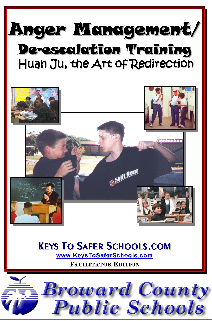The University Resident Assistant (RA's) Train-the-Trainer Training: is often the most important representative of the university in the life of a campus resident. Universities have always provided quality training to the RA’s in working with the day-to-day issues that affect their hall members. This training is augmented by Keys RA Training, which provides R.A. essentials in dealing with the ever increasing emotional issues that arise in the hall: Anger Management, Early Warning Signs of a student in crisis and Critical Disorders. Get Guide FREE with Training
- Anger Management/De-escalation
This teaches the RA how to recognize anger as it builds and provides him or her with the means to de-escalate that anger without over reacting and causing more problems.
- Identification of the Potentially Dangerous Student
Violence is almost always preceded by Early Warning Signs that the RA can be taught to identify. Once identified, the RA is equipped to take appropriate action or to refer the individual to a source of help.
- Critical Disorders
These disorders, that every RA may expect to encounter, include Suicide, Eating Disorders, Depression, Anxiety and Stress.
This Model will ultimately equip the University RA to recognize these emotional issues so that the hall member can receive professional help early and prevent injury or withdrawal from school. When trained the RA will use these skills to prevent personal burnout by being able to identify these traits within themselves and knowing what to do about it.
Section 1:
The Huan Ju System of Managing Anger
· Anger Management/Verbal De-escalation Techniques
· Be In Control of yourself
· Control the Situation
· Control the Person (Using the Huan Ju System)
Section 2:
Identify Warning Signs of Violence
· Social Characteristics
· Academic Characteristics
· Violent Characteristics
· Weapons Characteristics
Section 3:
Identifying Students who may have______:
· Depression
· Suicidal Tendencies
· Eating Disorders
· Anorexia Nervosa
· Bulimia Nervosa
· Stress Issues (4 Most Common Signs)
· Physical Signs
· Behavioral Signs
Section 4:
When is it time to REFER them for help?
· When you are not sure….REFER!
Attachments 1-5
· Forced Choices
· Balloon Exercise
· Stress Scale
· Stress Reduction Kit
· Checklist for Handling Stress
Get Guide FREE with Training


